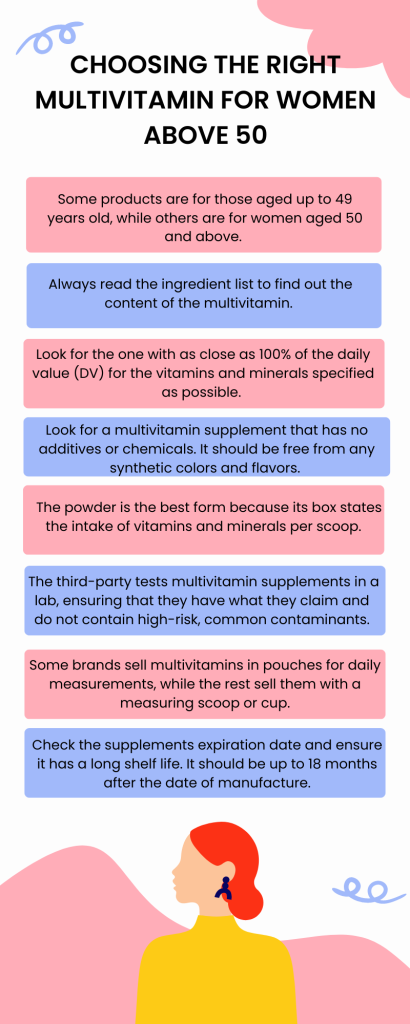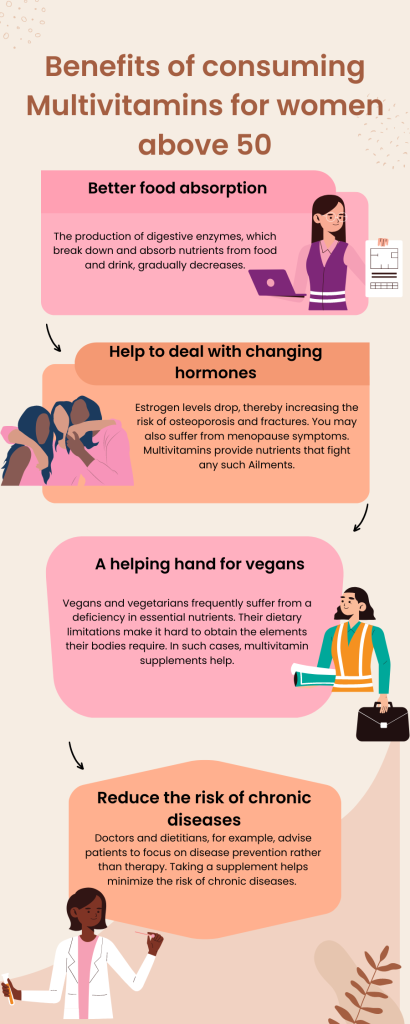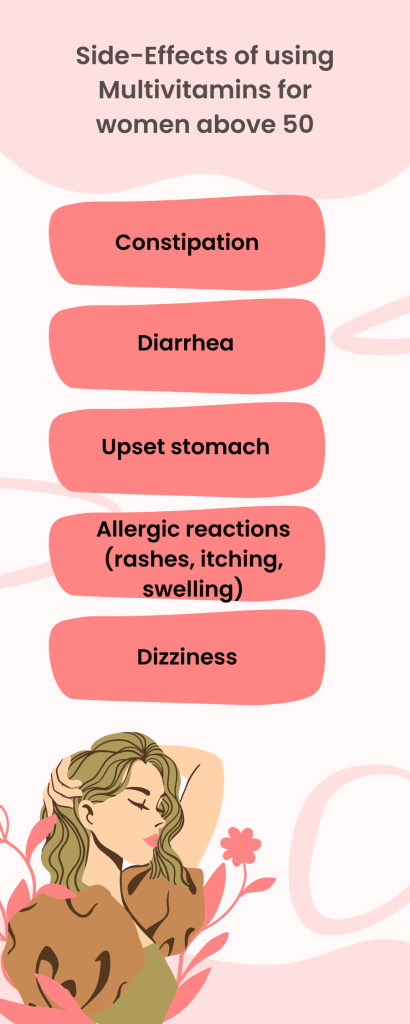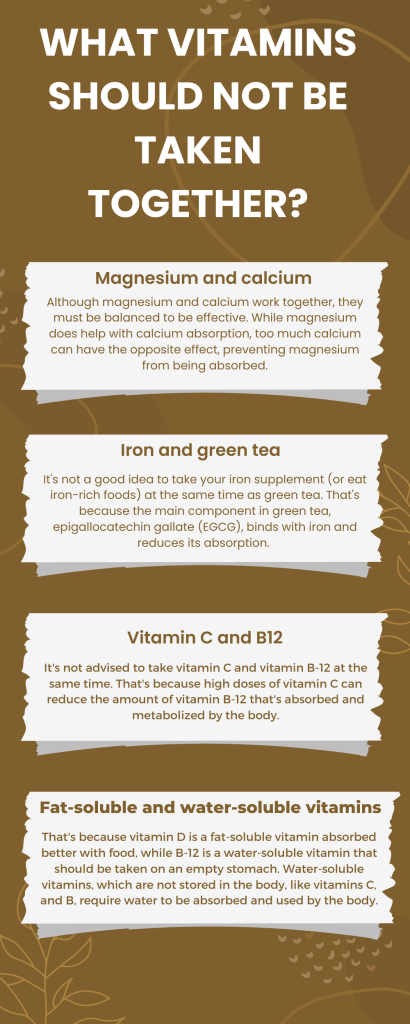Introduction
Picking up the best Multivitamin for women above 50 is challenging, and it requires a lot of research and study, especially for a particular age group. Our body needs essential vitamins and minerals as we age, especially after menopause. Women go through the below questions every day after they turn 50.
1- What multivitamins should I take to stay healthy?
2- Which multivitamins are suitable for keeping my memory sharp?
3- Is it okay if I take multivitamins every day?
However, you need not worry about it. We’ve got you covered! We have done all the hard work on your behalf and curated a list featuring multivitamins for women over 50. Read on to learn about the benefits and vital things to take into account to get your hands on the multivitamins that can benefit you remarkably.

Find The Best around the world
Australia
Canada
France
Germany
India
Italy
Japan
Netherlands
Singapore
Spain
Sweden
UAE
UK
USA
Tips for choosing the right multivitamin for women for you
Before buying multivitamins for women above 50, here are a few things to consider.
Age
Some products are for those aged up to 49 years old, while others are for women aged 50 and above. Make sure that the multivitamin supplement falls under the 50+ age category.
Ingredients
Always read the ingredient list to find out the content of the multivitamin. Many formulations contain multiple herbal or natural components that may interact with your medications or be inappropriate for your specific health conditions. Check whether or not you are allergic to any ingredient. Consult your healthcare professional about your requirements.
Daily Value
The Daily Value, the number of nutrients and vitamins in a product per a 2,000-calorie diet, will be displayed on multivitamins. Look for the one with as close as 100% of the daily value (DV) for the vitamins and minerals specified as possible. This will help you obtain the daily amount of nutrients you lack in your diet.
No additives
Look for a multivitamin supplement that has no additives or chemicals. It should be free from any synthetic colors and flavors. Artificial additives are harmful and complex for the body to digest. You can consider organic and whole food-based multivitamins as they are created from fruits and vegetables.
Form
Multivitamin supplements come in three forms: capsules, powder, and gummies. It is your choice which one to buy. The powder is the best form because its box states the intake of vitamins and minerals per scoop. The powder is easy to absorb and digest.
Certified
Make sure your supplement is third-party verified. The third-party tests multivitamin supplements in a lab, ensuring that they have what they claim and do not contain high-risk, common contaminants. Consumer Labs, NSF, and USP are three third-party certifications you can trust.
Packaging
Some brands sell multivitamins in pouches for daily measurements, while the rest sell them with a measuring scoop or cup. You can choose a brand according to your preference.
Expiry date
Check the supplements’ expiration date and ensure it has a long shelf life. It should be up to 18 months after the date of manufacture. Only buy a supplement that will expire within a month or two.
Benefits of using multivitamin for women
Here are some benefits of taking the best multivitamins for women above 50 in the the World.
Help to deal with changing hormones
Because your body changes during and after menopause, you have different dietary demands in your 50s. Estrogen levels drop, thereby increasing the risk of osteoporosis and fractures. You may also suffer from menopause symptoms. Multivitamins provide nutrients that fight any such Ailments.
Better food absorption
Malabsorption becomes more common as we age since our bodies no longer have the same ability to break down and absorb nutrients as they once did. The production of digestive enzymes, which break down and absorb nutrients from food and drink, gradually decreases. Multivitamins for women can help rectify these deficiencies and help in better food absorption.
A helping hand for vegans
Vegans and vegetarians frequently suffer from a deficiency in essential nutrients. Their dietary limitations make it hard to obtain the elements their bodies require. In such cases, multivitamin supplements help.
Reduce the risk of chronic diseases
Doctors and dietitians, for example, advise patients to focus on disease prevention rather than therapy. Taking a supplement helps minimize the risk of chronic diseases. Women taking multivitamins are 73% less likely to have diabetes and 39% less likely to have hypertension.
Side-effects of using Multivitamin For Women above 50
Multivitamins are safe for everyone, but you should always consult your doctor before taking them.
Some side-effects that you may suffer:
- Constipation
- Diarrhea
- Upset stomach
- Allergic reactions (rashes, itching, swelling)
- Dizziness
- Trouble breathing
There may be other side effects of taking multivitamins. This is a partial list. If you have any other side effects, consult your doctor.
Precautions
If you suffer from the following conditions, consult your doctor before taking additional supplements.
- Allergic to soy ( some brands contain soy in their multivitamins)
- Iron overload disorder ( hemosiderosis, hemochromatosis)
- Use of alcohol
- Liver problems
- Stomach/intestinal issues ( ulcers, colitis)
- Vitamin B12 deficiency ( pernicious anemia)
- Pregnant or breastfeeding women
Who should use multivitamin for women
- Women aged 50 or above
- Women with Malabsorption syndrome
- Women that have a limited or poor diet
- Overweight women with joint pain
- Vegan women
Recommended Dosage of Multivitamin For Women above 50
Follow the dosage instructions on the back of your multivitamins box. Or ask your pharmacist or doctor about the correct dosage.
Women aged 51–70 should consume at least 15 mcg (600 IU) daily but not more than 100 mcg (4,000 IU) of vitamins. If you are over 70, you need at least 20 mcg (800 IU) but not more than 100 mcg (4,000 IU).
What Vitamins should not be taken together?
Reading the label and the suggested supplementation protocol for each supplement you are taking is very important.
Magnesium and calcium
Although magnesium and calcium work together, they must be balanced to be effective. While magnesium does help with calcium absorption, too much calcium can have the opposite effect, preventing magnesium from being absorbed.
Iron and green tea
It’s not a good idea to take your iron supplement (or eat iron-rich foods) at the same time as green tea. That’s because the main component in green tea, epigallocatechin gallate (EGCG), binds with iron and reduces its absorption.
Vitamin C and B12
It’s not advised to take vitamin C and vitamin B-12 at the same time. That’s because high doses of vitamin C can reduce the amount of vitamin B-12 that’s absorbed and metabolized by the body.
Fat-soluble and water-soluble vitamins
That’s because vitamin D is a fat-soluble vitamin absorbed better with food, while B-12 is a water-soluble vitamin that should be taken on an empty stomach. Water-soluble vitamins, which are not stored in the body, like vitamins C, and B, require water to be absorbed and used by the body.
Do you represent a health, nutrition, beauty, or fitness brand?
Share your brand story, and its philosophy with our millions of readers looking for the highest quality products for their well-being. We understand that your products cater to the unique needs of an individual; here’s your opportunity to share the purpose and unique value proposition of your products that you’ve so caringly created for their well-being.
Share your brand story
Frequently asked questions on multivitamin for women
1. Should a 50-year-old woman take a multivitamin?
2. Which vitamins are most important for women over 50?
3. How much vitamin should a woman over 50 take?
4. What two vitamins are most important?
5. Which vitamin is good for the eyes?
6. What kind of vitamins should a woman take daily?
7. What are the four critical vitamins for your body?
8. What vitamins are good for menopause and anxiety?
9. What happens when you take too many vitamins?
10. What happens if I stop taking multivitamins?
Are you a health, nutrition, beauty or fitness expert?
Inviting all health, fitness, beauty, and wellness experts from around the world to join Zotezo, the ultimate trust commerce platform, and empower millions to make the right decisions for their wellbeing. Share your knowledge, review the highest quality products, and provide valuable insights to our engaged audience. Together, let's create a healthier, happier world!
Join our expert advisory board
Conclusion
Multivitamins are not a substitute for a well-balanced diet but can help fill nutritional deficiencies. Nutritional gaps are more common in those with allergies, certain medical conditions, or those over 50, which leads to nutrient shortages and ill health. Multivitamins tailored to your needs are a fantastic way to combat this.
To get the most out of your multivitamin, choose the one made with whole foods so your body can absorb the nutrients more efficiently. This guarantees you enough vitamins and minerals daily to maintain your overall health.
Did you find this article interesting? Were these products on your checklist as well? Please keep us posted in the comments below and share it with your friends, families, and beloved ones. Also, remember to mention the best multivitamins for women over 50 in the the World you pick up from Amazon.








